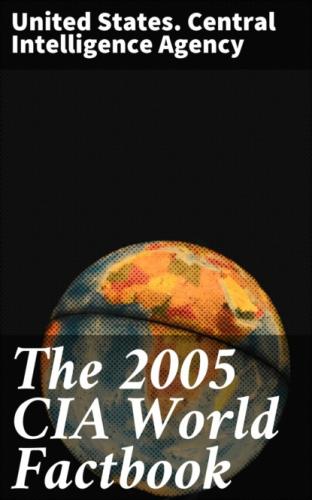NA%; seats by party - independents 21, Sunni Islamists 9, other 10
note: first elections since 7 December 1973; unicameral National
Assembly dissolved 26 August 1975; National Action Charter created
bicameral legislature on 23 December 2000; approved by referendum 14
February 2001; first legislative session of Parliament held on 25
December 2002
Judicial branch:
High Civil Appeals Court
Political parties and leaders: political parties prohibited but politically oriented societies are allowed
Political pressure groups and leaders:
Shi'a activists fomented unrest sporadically in 1994–97, demanding
the return of an elected National Assembly and an end to
unemployment; several small, clandestine leftist and Islamic
fundamentalist groups are active
International organization participation:
ABEDA, AFESD, AMF, ESCWA, FAO, G-77, GCC, IBRD, ICAO, ICC, ICCt
(signatory), ICRM, IDB, IFC, IFRCS, IHO, ILO, IMF, IMO, Interpol,
IOC, ISO, ITU, LAS, MIGA, NAM, OAPEC, OIC, OPCW, UN, UNCTAD, UNESCO,
UNIDO, UPU, WCO, WFTU, WHO, WIPO, WMO, WToO, WTO
Diplomatic representation in the US: chief of mission: Ambassador Nasir al-BALUSHI chancery: 3502 International Drive NW, Washington, DC 20008 telephone: [1] (202) 342–1111 FAX: [1] (202) 362–2192 consulate(s) general: New York
Diplomatic representation from the US: chief of mission: Ambassador William T. MONROE embassy: Building #979, Road 3119 (next to Al-Ahli Sports Club), Block 331, Zinj District, Manama mailing address: American Embassy Manama, PSC 451, FPO AE 09834–5100; international mail: American Embassy, Box 26431, Manama telephone: [973] 1724–2700 FAX: [973] 1725–6242 (consular)
Flag description:
red, the traditional color for flags of Persian Gulf states, with a
white serrated band (five white points) on the hoist side; the five
points represent the five pillars of Islam
Economy Bahrain
Economy - overview:
In well-to-do Bahrain, petroleum production and refining account
for about 60% of export receipts, 60% of government revenues, and
30% of GDP. With its highly developed communication and transport
facilities, Bahrain is home to numerous multinational firms with
business in the Gulf. A large share of exports consist of petroleum
products made from refining imported crude. Construction proceeds on
several major industrial projects. Unemployment, especially among
the young, and the depletion of oil and underground water resources
are major long-term economic problems. In September 2004 Bahrain
signed a Free Trade Agreement (FTA) with the United States - the
first such agreement undertaken by a Gulf state. Both countries must
ratify the FTA before it is enforced.
GDP (purchasing power parity):
$13.01 billion (2004 est.)
GDP - real growth rate:
5.6% (2004 est.)
GDP - per capita:
purchasing power parity - $19,200 (2004 est.)
GDP - composition by sector:
agriculture: 0.7%
industry: 41%
services: 58.4% (2004 est.)
Labor force:
370,000
note: 44% of the population in the 15–64 age group is non-national
(2004 est.)
Labor force - by occupation:
agriculture 1%, industry, commerce, and services 79%, government
20% (1997 est.)
Unemployment rate:
15% (1998 est.)
Population below poverty line:
NA
Household income or consumption by percentage share:
lowest 10%: NA
highest 10%: NA
Inflation rate (consumer prices):
2.1% (2004 est.)
Investment (gross fixed):
12.8% of GDP (2004 est.)
Budget:
revenues: $3.825 billion
expenditures: $3.262 billion, including capital expenditures of $700
million (2004 est.)
Public debt:
63.8% of GDP (2004 est.)
Agriculture - products:
fruit, vegetables; poultry, dairy products; shrimp, fish
Industries:
petroleum processing and refining, aluminum smelting, iron
pelletization, fertilizers, offshore banking, ship repairing; tourism
Industrial production growth rate:
2% (2000 est.)
Electricity - production:
6.86 billion kWh (2002)
Electricity - production by source: fossil fuel: 100% hydro: 0% nuclear: 0% other: 0% (2001)
Electricity - consumption:
6.379 billion kWh (2002)
Electricity - exports:
0 kWh (2002)
Electricity - imports:
0 kWh (2002)
Oil - production:
44,000 bbl/day (2003)
Oil - consumption:
40,000 bbl/day (2003 est.)
Oil - exports:
NA
Oil - imports:
NA
Oil - proved reserves:
126 million bbl (2004 est.)
Natural gas - production:
32.7 billion cu m (2002 est.)
Natural gas - consumption:
32.7 billion cu m (2002 est.)
Natural gas - exports:
0 cu m (2002 est.)
Natural gas - imports:
0 cu m (2002 est.)
Natural gas - proved reserves:
46 billion cu m (2004)
Current account balance:
$586.1 million (2004 est.)
Exports:
$8.205 billion (2004 est.)
Exports - commodities:
petroleum and petroleum products, aluminum, textiles
Exports - partners:
Saudi Arabia
